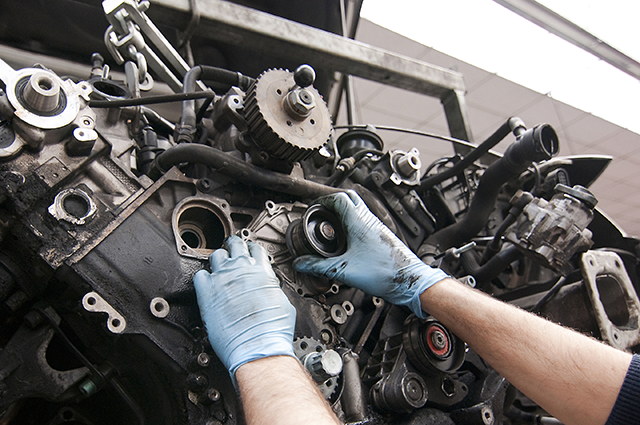A car or truck is often your treasured possession. A lot of time was spent choosing it, with even more time spent working to pay for it, but at the end of the day any car is just a machine. And regrettably, the truth about machines is that they eventually break and they routinely require maintenance and service.
Since the cost of maintenance and repair is an inevitable cost of ownership, the challenge for consumers is getting the very best VALUE for every maintenance dollar. The secret to getting this value is simple – find and stick with a great mechanic.
So how do you find a great mechanic? Sometimes, it is better to know what not to do. Avoid these easy pitfalls to find a mechanic that will save you money and deliver value on every dollar you spend at their shop:
- Don’t go to a dealership
- Don’t use a quickie lube shop for oil changes
- Don’t let them guess
First, a car dealership sells service and repair at an inflated price because the brand name of your car is on the garage wall. There is a widely held assumption among consumers that goes something like this, “Well, the mechanics at the Toyota dealership must know the most about Toyotas.”
This assumption just doesn’t hold up. In fact, the technicians inside the dealer’s garage probably have the same level of training and certification as other ASE certified mechanics at an independent garage. However, the dealership is going to charge a premium on their labor and a steep mark-up on their repair parts. So you are not getting value at the dealership. Instead you are paying for an image and a marketing idea that just doesn’t hold up under scrutiny.
Second, don’t go to a quickie lube shop for your oil changes. The allure of getting an oil change for less than $20 is powerful, but this is a waste of money. The quickie lube shop is staffed mostly by minimum wage employees with limited technical training, and they are going to try to sell you something else in order to drive the bill up around $40. You aren’t getting a real “mechanic” looking at your car, and the pre-planned “up-sell” is part of their business model. So in the end you won’t know if your car is developing problems because you haven’t had it looked at by a certified technician and you may end up paying more for oil changes than it would have cost you at an independent garage.
Also, and more importantly, your routine oil changes are like check-ups at the car doctor. Every car has a unique character and seems to develop its own little ticks and fits around 100,000 miles. By having your oil changed at an independent garage instead of the quickie lube shop you will get service by an ASE certified technician that will see your car routinely and begin to take notice of its unique issues. This familiarity with your, car and a solid understanding of the trend lines your car is on, are essential to the long-term maintenance plan for ensuring your car stays safe and reliable for as long as you plan to keep it.
Finally, don’t let them guess. There are really two components to this recommendation. When I say “don’t let them guess,” I am referring to the training and experience of the diagnostic technicians and the reference material they have at their disposal.
To begin with, there are a lot of guys who “have worked on cars their entire life.” This is a great foundation upon which to build a qualified and certified automotive technician. However, this is NOT by itself an acceptable level of proficiency for a great mechanic. With the introduction of computer controlled everything, a great mechanic REQUIRES formal training in automotive diagnostics and repair.
Insist on ASE certification. Look at the walls in your independent garage and make sure you see certificates for their technicians. These certificates are your assurance that the mechanics in your garage know how to read schematic diagrams for the sensor system feedback loops that govern your engine’s electronic controls. Sound complicated? It is, and only a certified mechanic is traines to do what’s required to take care of a modern car.
The final element of, “Don’t let them guess” is making sure your independent garage has access to Original Equipment Manufacturer’s (OEM) technical data. What we are talking about here is an online service that provides the technicians will all the manufacturers specifications for sensor voltages, wiring diagrams, component installation and other technical data.
There are a lot of fly-by-night garages, even some with certified technicians, that do not subscribe to an OEM data source. Without this data even trained technicians will be guessing at what a sensor voltage “should” be. Or they will be taking their best shot at the step by step procedure for removing a component deep in the engine compartment. So ask the service desk what they use for an OEM service guide. Some of the more popular national products are All-Data and The Mitchell Guide. Without one of these tools the mechanics in the service bay are guessing and you deserve better.
In the end, if you avoid these simple pitfalls you will find a garage that makes you feel comfortable, appreciates your business, and when they are doing it right, makes you feel confident that they are taking care of your safety and the safety of everyone that rides with you.
Article Source: http://EzineArticles.com/6207020

